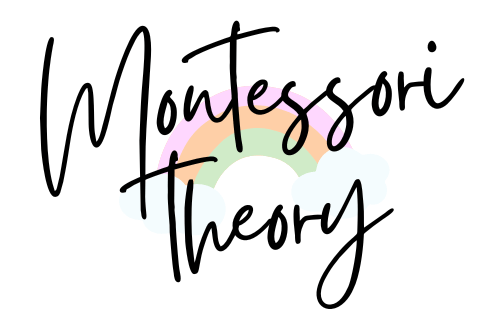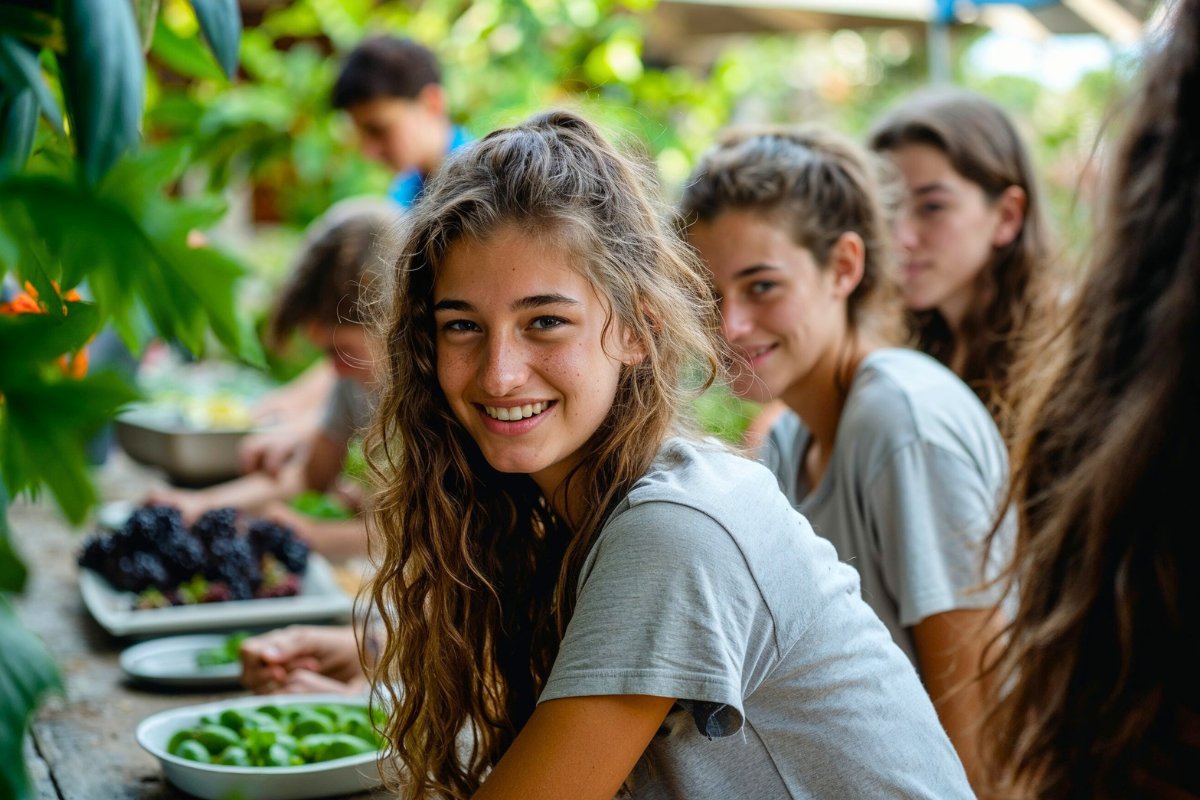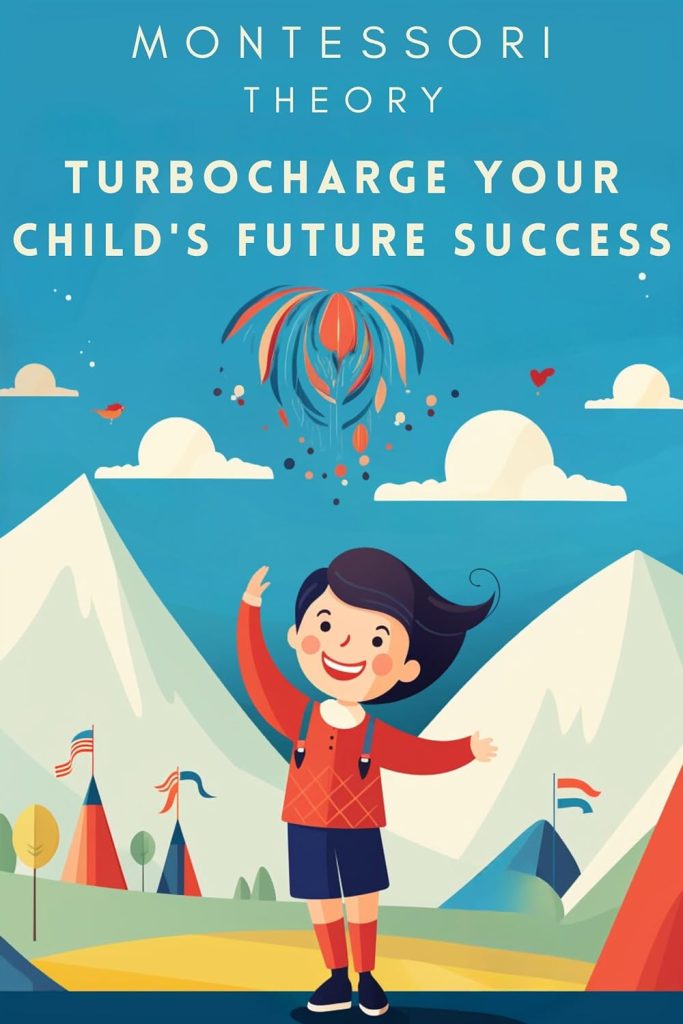Erdkinder represents a pivotal aspect of Montessori education, specifically tailored to address the unique needs of adolescents in both middle school (ages 12–15) and upper school (ages 15–18). The Montessori Method, renowned for its child-centered approach, extends its philosophy to these crucial developmental stages. This innovative curriculum transcends traditional education, offering a comprehensive method that encompasses emotional, social, and practical skills development, all of which are crucial during the adolescent years. Erdkinder’s approach goes beyond mere academic learning; it aims to holistically nurture the adolescent, preparing them for the complexities of adult life.
Key Takeaways
- Tailored for adolescents aged 12 to 18, Erdkinder emphasizes self-directed learning, community engagement, and practical life skills, focusing on holistic development beyond academics.
- Erdkinder offers a supportive environment for emotional intelligence and social skill growth, essential for adolescent maturity.
- The curriculum promotes intellectual curiosity and caters to physical development through various health-focused activities.
- Erdkinder integrates academic learning with real-life skills, preparing students for future challenges and career readiness.
- The approach requires addressing misconceptions, resource allocation, and balancing structured guidance with student autonomy.
Erdkinder: A Paradigm Shift in Adolescent Education
Erdkinder, a brainchild of Dr. Maria Montessori, is a unique educational approach tailored for adolescents aged 12 to 18, much like the Nido caters to the earliest stage of development in Montessori education. Unlike traditional systems, Erdkinder champions self-directed learning, community engagement, and the cultivation of practical life skills. This innovative approach stems from the belief that adolescents require an environment that fosters their unique developmental needs.
Adolescence, a transformative period, marks significant changes in physical, emotional, and social growth. Erdkinder recognizes this delicate stage and provides a nurturing atmosphere where students can express their emotions freely, cultivate empathy, and develop essential social skills. This approach nurtures emotional maturity and prepares adolescents for the challenges ahead.
Erdkinder ignites a lifelong passion for learning by encouraging students to delve into subjects that pique their curiosity, learning at their own pace and setting their own goals. This personalized approach fosters a deeper understanding of content and fuels a passion for learning that transcends traditional boundaries.
Erdkinder’s Approach to Adolescent Development for Tomorrow’s Challenges
At the heart of Montessori education for adolescents lies the Erdkinder approach, a beacon of innovation designed to resonate with the unique developmental journey of young individuals. It stands as a testament to Maria Montessori’s deep understanding of adolescent needs, challenges, and aspirations.
-
Emotional and Social Flourishing
Adolescence is not just a phase; it’s a transformative expedition. Erdkinder acknowledges this crucial period as a time of profound emotional and social evolution. In a nurturing environment, students are encouraged to safely express and manage their emotions, fostering resilience and emotional intelligence. The communal classroom ambiance is meticulously crafted to cultivate empathy, understanding, and robust social skills, which are indispensable for emotional maturity.
-
Intellectual Awakening
Erdkinder places a strong emphasis on intellectual growth, fostering a passion for learning that transcends traditional academic boundaries. Students are encouraged to delve deeply into subjects, learning at their own pace, promoting an enduring intellectual curiosity. This journey is not just about acquiring knowledge but about cultivating critical thinking, empowering students to question, analyze, and synthesize information in ways that ignite a lifelong love for learning.
-
Holistic Physical Development
Recognizing the significant physical changes during adolescence, Erdkinder integrates activities that promote overall physical health and well-being. From practical outdoor tasks like gardening and carpentry to physical education and mindfulness practices, the approach caters to the holistic development of the body, ensuring a healthy balance between physical activity and mental growth.
-
Cognitive Skills Enhancement
In the Erdkinder environment, cognitive abilities such as problem-solving, decision-making, and creative thinking are not just taught; they are experienced. Through various hands-on projects and real-life tasks, students are not only learning theories but applying their cognitive skills in diverse, real-world contexts, enhancing their practical intelligence and creative capabilities.
-
Preparing for the Future
Erdkinder transcends traditional academic learning. It’s a preparatory ground for life beyond the school walls, focusing on career exploration, life skills education, and opportunities to understand and navigate the complexities of the wider world. This approach ensures that adolescents are not just academically equipped but are also prepared with the necessary skills for future endeavors.
-
Cultivating Independence and Responsibility
The most pivotal aspect of Erdkinder is its dedication to preparing adolescents for adult life. It emphasizes developing crucial life skills, honing decision-making abilities, and fostering a sense of independence and responsibility. Erdkinder doesn’t just educate; it equips students with the essential tools and insights needed to navigate and thrive in the intricate tapestry of adult life.
Erdkinder Curriculum and Learning Environment
The Erdkinder curriculum deviates from the traditional approach of compartmentalizing subjects into distinct silos. Instead, it embraces a holistic approach, weaving together traditional academic disciplines like language arts, science, and mathematics with practical life skills. This integration fosters a deeper understanding of the interconnectedness of knowledge and equips students with the skills they need to navigate real-world challenges.
A Fusion of Academics and Practicality
- Language Arts: Students engage in meaningful writing and reading experiences, exploring literature, poetry, and essays that delve into human experiences, social issues, and the natural world. This emphasis on critical thinking and effective communication empowers them to express themselves clearly and persuasively.
- Science: Erdkinder students embark on hands-on experiments, investigations, and field studies that bring scientific concepts to life. They explore the wonders of the natural world, delving into the intricacies of ecosystems, the beauty of physics, and the mysteries of chemistry. This experiential approach sparks their curiosity and nurtures a lifelong love of science.
- Mathematics: Erdkinder curriculum approaches mathematics with a practical lens, linking abstract concepts to real-life applications. Students engage in problem-solving exercises that involve budgeting, designing structures, and analyzing data. This practical application reinforces mathematical principles and enhances their problem-solving abilities.
Practical Life Skills: Cultivating Self-Reliance and Community Engagement
Beyond traditional academics, the Erdkinder curriculum emphasizes the development of practical life skills that empower students to become self-sufficient and engaged members of their communities. These skills include:
- Cooking: Students learn to prepare nutritious meals, fostering a sense of independence and a healthy relationship with food.
- Gardening: Erdkinder students cultivate their own gardens, gaining hands-on experience with plant care, sustainable agriculture, and the interconnectedness of nature.
- Carpentry: Learning basic carpentry skills empowers students to build and repair furniture, structures, and other objects, fostering a sense of creativity and problem-solving prowess.
- Community Service: Erdkinder students engage in meaningful community service projects, developing empathy, responsibility, and a deeper understanding of their place in the world.
A Learning Environment That Mimics Real-Life
The Erdkinder learning environment mirrors a real-life community, providing a dynamic and stimulating backdrop for learning. Students work together on projects, collaborate on tasks, and engage in discussions, fostering a sense of teamwork, collaboration, and shared responsibility.
- Hands-on Projects: Erdkinder curriculum is rich in hands-on projects that allow students to apply their knowledge and skills in practical settings. These projects range from building miniature houses to conducting market research, providing a platform for creative expression and problem-solving.
- Self-directed Learning: Teachers act as guides and facilitators, encouraging students to take ownership of their learning journeys. Students set their own learning goals, research topics that interest them, and present their findings to the class, fostering a sense of autonomy and intellectual curiosity.
- Community Engagement: The Erdkinder learning environment extends beyond the classroom walls, encouraging students to engage with the broader community. They participate in local events, volunteer their services, and connect with residents, developing a sense of civic responsibility and belonging.
The Role of the Teacher: A Guide to Personal Growth
In an Erdkinder program, the teacher’s role shifts from an instructor to a facilitator, providing guidance and support as students navigate their learning path. Teachers act as mentors, helping students identify their passions, develop their talents, and overcome challenges.
- Observation and Support: Teachers observe students closely, noting their strengths, areas for improvement, and areas of interest. They provide individualized support, offering guidance, resources, and encouragement as students pursue their personal growth goals.
- Creating a Nurturing Environment: Teachers create a safe and supportive environment where students feel comfortable taking risks, experimenting, and making mistakes. They foster a sense of belonging and encourage students to collaborate and learn from each other.
Erdkinder vs. Conventional Education Systems
The Erdkinder approach within Montessori education presents a stark contrast to traditional educational systems. This comparative analysis highlights the key differences and potential advantages of the Erdkinder method.
- Learning Environment: Traditional classrooms often feature a teacher-centric environment, with students seated in rows, focusing on the teacher’s instruction. In contrast, Erdkinder classrooms are student-centric, promoting self-directed learning in a more interactive and flexible setting.
- Teaching Approach: Conventional education tends to follow a standardized curriculum, emphasizing rote learning and memorization. Erdkinder, however, is characterized by its individualized and experiential learning approach, encouraging deep understanding and practical application of knowledge.
- Student Engagement: In traditional settings, student engagement can be limited, with passive learning being a common scenario. Erdkinder’s dynamic environment fosters active participation, critical thinking, and a deeper engagement with the learning material.
- Skill Development: While traditional education focuses primarily on academic skills, Erdkinder encompasses a broader range of skill development, including social, emotional, and practical life skills.
- Preparation for Future: Traditional education often prepares students for exams and college entry, whereas Erdkinder aims to prepare students for all aspects of adult life, equipping them with the tools to face real-world challenges effectively.
| Aspect | Erkinder | Traditionnal High School |
|---|---|---|
| Learning Environment | Student-centric with a focus on self-directed learning. Interactive and flexible setting. | Teacher-centric, with students seated in rows focusing on the teacher’s instruction. |
| Teaching Approach | Individualized and experiential learning approach, encouraging deep understanding and practical application. | Standardized curriculum emphasizing rote learning and memorization. |
| Student Engagement | Dynamic environment fostering active participation, critical thinking, and deep engagement. | Often limited engagement with passive learning being common. |
| Skill Development | Encompasses a broad range of skill development, including social, emotional, and practical life skills. | Primarily focuses on academic skills. |
| Preparation for Future | Aims to prepare students for all aspects of adult life, equipping them with tools for real-world challenges. | Often prepares students mainly for exams and college entry. |
Erkinder Real-World Examples and Success Stories
Erdkinder’s effectiveness is vividly demonstrated in various real-world settings. The Hershey Montessori School in Huntsburg, Ohio, is a prime example, integrating agriculture into its curriculum on a campus featuring a working farm, residential housing, program barns, and a bio-shelter. This unique setup nurtures students who are academically proficient and environmentally conscious. Similarly, Bovina Center Montessori School in New York offers a distinctive farm-based education, while The Homestead School in Glen Spey and Hurleyville, NY, blends a holistic Montessori approach with permaculture farming. These institutions exemplify the Erdkinder model’s success in fostering academic excellence, environmental awareness, and community involvement.
Erdkinder’s innovative approach has been applied in various Montessori settings worldwide, yielding remarkable success stories. This section explores some of these real-world applications, illustrating the tangible impact of the Erdkinder approach on adolescent learning and development. Testimonials from students who have gone through the Erdkinder curriculum often highlight increased self-confidence, improved social skills, and a deeper understanding of their role in the community. Parents and teachers note a visible growth in maturity and responsibility among adolescents who participate in such programs.
The Impact of Erkinder Education
The Erkinder approach, rooted in Montessori philosophy, offers a revolutionary path in adolescent education. It challenges traditional norms, advocating for a holistic, student-centered learning experience. Yet, this journey is not without hurdles – resource allocation, scalability, and cultural adaptation pose significant challenges.
Embracing Erkinder requires commitment and collaboration from all educational stakeholders. It’s an opportunity to redefine learning, focusing on empowering young minds for real-world complexities. Despite the challenges, the promise of Erkinder – nurturing a generation of well-rounded individuals – is a compelling call to action.
In essence, Erkinder is not just an educational method; it’s a catalyst for transformative change. As we navigate its implementation, let’s focus on its potential to reshape and enrich the educational landscape.




